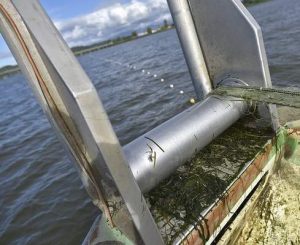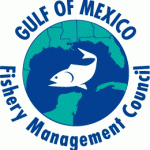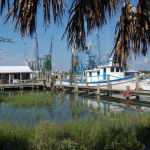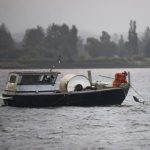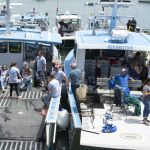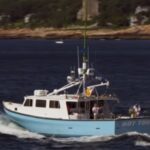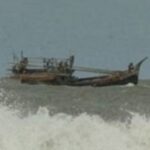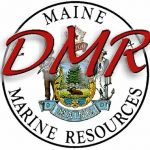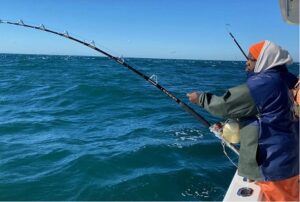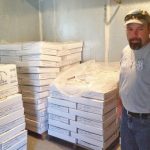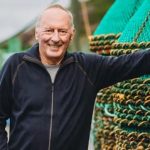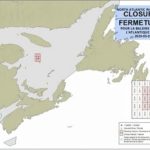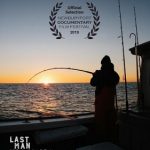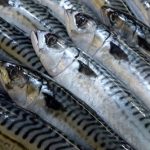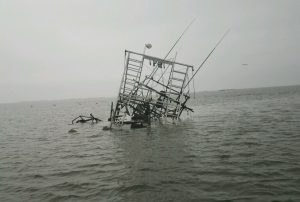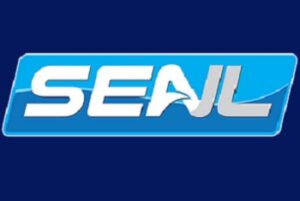A recent update to the state’s Columbia River salmon management policy to change harvest allocations and allow commercial gillnetting on the main stem has anglers reeling. “We’ve made a lot of changes over the last 30 years to how we fish in order to adjust to (federal Endangered Species Act) listings, in order to adjust to harvesting the best fish in the river at the best times,” said Robert Sudar, a commercial fishing advisor based in Longview. “It’s a totally different fishery than it was 30 to 40 years ago.” >click to read< 10:08
Tag Archives: Washington Department of Fish and Wildlife
Hammond crab fisherman serving jail time for illegal pots
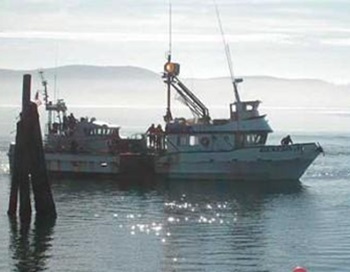 A North Coast man recently found guilty following a 2007 commercial crab enforcement operation off the Oregon Coast began serving his sentence last week in Tillamook County. Dennis Sturgell, 56, of Hammond was lodged in Tillamook County Jail to serve a 30-day sentence after he pleaded guilty in Tillamook County Circuit Court Feb. 6 to two counts of unlawful use of commercial crab pots. Tillamook County Circuit Court Judge Rick Roll handed down a sentence of 30 days and $41,200 in restitution to the Oregon Department of Fish and Wildlife Commercial Fish Fund. The conviction was the result of a 2007 case when the Washington Department of Fish and Wildlife and Oregon State Police Fish and Wildlife Division conducted a joint enforcement operation. That was the first year the state of Oregon introduced a limit on the number of commercial crab pots that any one vessel could fish. more, >>CLICK TO READ<< 14:05
A North Coast man recently found guilty following a 2007 commercial crab enforcement operation off the Oregon Coast began serving his sentence last week in Tillamook County. Dennis Sturgell, 56, of Hammond was lodged in Tillamook County Jail to serve a 30-day sentence after he pleaded guilty in Tillamook County Circuit Court Feb. 6 to two counts of unlawful use of commercial crab pots. Tillamook County Circuit Court Judge Rick Roll handed down a sentence of 30 days and $41,200 in restitution to the Oregon Department of Fish and Wildlife Commercial Fish Fund. The conviction was the result of a 2007 case when the Washington Department of Fish and Wildlife and Oregon State Police Fish and Wildlife Division conducted a joint enforcement operation. That was the first year the state of Oregon introduced a limit on the number of commercial crab pots that any one vessel could fish. more, >>CLICK TO READ<< 14:05
Fiercest fisherman roils crabbing world – He has filled boats with crab and fish, and he has kept law enforcement busy. more, >>CLICK TO READ<<
Dungeness crab: The West Coast’s forever fishery
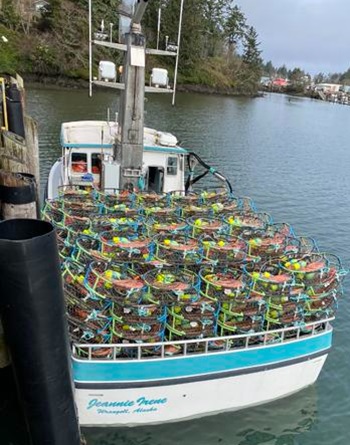 Fourth-generation fisherman Kelsey Cutting has photos of boats prominently displayed in his Long Beach, Wash., dining room. On one side is his grandfather’s old trawler, the Lulu 2, a 35-foot wooden double ender. “The other side I have a picture of my boat, the Jeannie Irene, which is a 50-foot fiberglass boat, and it’s 10 years old. It’s a big difference,” Cutting said. The fishing fleet on the West Coast has gotten bigger and more modern, and the portion of boats that can operate in relatively poor weather has increased, he said. The job remains dangerous, though, and storms can be unforgiving. But there can be a handsome payoff at the docks, especially for Dungeness crab. The West Coast’s top fishery surpassed $200 million in value in Washington, Oregon and California in 2022-23. Photos, more, >>click to read<< 15:46
Fourth-generation fisherman Kelsey Cutting has photos of boats prominently displayed in his Long Beach, Wash., dining room. On one side is his grandfather’s old trawler, the Lulu 2, a 35-foot wooden double ender. “The other side I have a picture of my boat, the Jeannie Irene, which is a 50-foot fiberglass boat, and it’s 10 years old. It’s a big difference,” Cutting said. The fishing fleet on the West Coast has gotten bigger and more modern, and the portion of boats that can operate in relatively poor weather has increased, he said. The job remains dangerous, though, and storms can be unforgiving. But there can be a handsome payoff at the docks, especially for Dungeness crab. The West Coast’s top fishery surpassed $200 million in value in Washington, Oregon and California in 2022-23. Photos, more, >>click to read<< 15:46
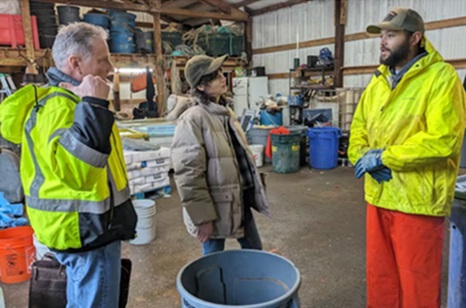
Crabbers rebound from Southwest Washington seafood facility fire
On Monday, commercial crabbers in Oregon and Washington state started dropping baited circular steel crab pots into the ocean. On Thursday, they will start hauling them back up, hopefully full of Dungeness crab. It’s a critical and fast-paced time. The bulk of the crab caught in the lucrative fishery is typically landed in the early weeks of the season. On the water this week are fishermen who saw hundreds of their crab pots burn up in a fire at a seafood landing facility in Ilwaco, Washington, a week before the fishery was set to open. An estimated 4,000 pots were lost in the Jan. 22 fire at the Bornstein Seafoods facility. Now, almost as many are back in the fishermen’s hands. more, >>click to read<< 07:21
Washington’s Coastal Dungeness Crab Commercial Season Opens Feb. 1
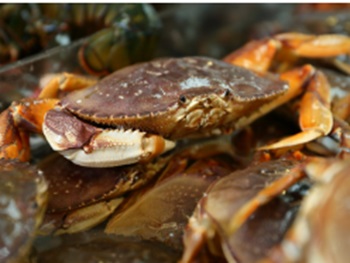 Washington’s coastal Dungeness crab commercial season will open coastwide with a reduced pot limit on Feb. 1, state fishery managers announced this month. The coastal Dungeness crab industry is one of the most important commercial fisheries in the state, particularly for coastal communities and economies. According to a recent report by the Washington Department of Fish and Wildlife (WDFW), the value of state crab landings during the 2022-23 season was $64.6 million. This is the second-highest total value recorded in the past 10 years, surpassed only by the previous season high of $88.2 million in 2021-22. Reduced pot limits will apply to all state commercial fishers coastwide. Those with permanent pot limits of 500 or 300 will be allowed to use 400 or 250 pots, respectively. more, >>click to read<< 10:00
Washington’s coastal Dungeness crab commercial season will open coastwide with a reduced pot limit on Feb. 1, state fishery managers announced this month. The coastal Dungeness crab industry is one of the most important commercial fisheries in the state, particularly for coastal communities and economies. According to a recent report by the Washington Department of Fish and Wildlife (WDFW), the value of state crab landings during the 2022-23 season was $64.6 million. This is the second-highest total value recorded in the past 10 years, surpassed only by the previous season high of $88.2 million in 2021-22. Reduced pot limits will apply to all state commercial fishers coastwide. Those with permanent pot limits of 500 or 300 will be allowed to use 400 or 250 pots, respectively. more, >>click to read<< 10:00
Commercial crabbing start pushed into 2024
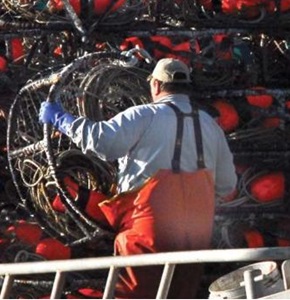 Dungeness crab in the vicinity of the mouth of the Columbia are still only inching their way toward the proportion of meat required before commercial harvest is allowed, delaying the season again. Fishery managers decided on Dec. 18 to push out the season start to Dec. 31, Jan. 15 or Feb. 1. They will meet Dec. 20 to settle on which date crabbers will be allowed to drop their pots, with deliveries back to port typically occurring around 72 hours later. Samples gathered Dec. 17 found south Pacific County crab had 20.7% recoverable meat, up from 19.4% meat on Nov. 28. Clatsop County crab tested at 22.9%, just shy of the mandatory minimum meat recovery criteria of 23% north of Cascade Head, and up from 21.1% on Nov. 29. more, >>click to read<< 14:30
Dungeness crab in the vicinity of the mouth of the Columbia are still only inching their way toward the proportion of meat required before commercial harvest is allowed, delaying the season again. Fishery managers decided on Dec. 18 to push out the season start to Dec. 31, Jan. 15 or Feb. 1. They will meet Dec. 20 to settle on which date crabbers will be allowed to drop their pots, with deliveries back to port typically occurring around 72 hours later. Samples gathered Dec. 17 found south Pacific County crab had 20.7% recoverable meat, up from 19.4% meat on Nov. 28. Clatsop County crab tested at 22.9%, just shy of the mandatory minimum meat recovery criteria of 23% north of Cascade Head, and up from 21.1% on Nov. 29. more, >>click to read<< 14:30
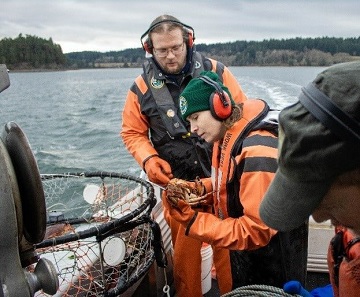
Crab fishing remains lucrative, critical industry for Gig Harbor fishermen
Off the coast of Washington, several Gig Harbor residents are hard at work on crab fishing boats, handling all that comes with the job. A handful of Gig Harbor residents hold commercial crab fishing licenses. Several others are crab license lease holders. The state capped the number of available commercial crab fishing licenses at 220 in the 1990s. The intent was to manage crab populations, and also limit the amount of gear in the water to protect other sea life, such as whales, said Dan Ayers, coastal shellfish manager with the Washington Department of Fish and Wildlife. Commercial crab fishing was an estimated $86 billion industry in Washington state in 2022. That total includes boat sales, gear, and processing facilities that handle the harvests. >click to read< 09:24
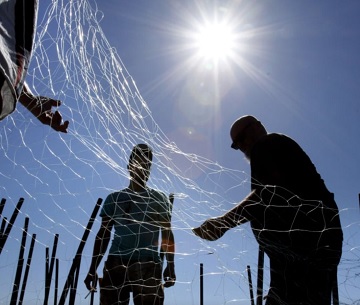
Days of gillnetting on lower Columbia River may be numbered
Senate Bill 5297 would remove nontribal mainstem gillnet use in the Columbia River downstream of Bonneville Dam to off-channel locations beginning in 2025. Tribal gillnetting in the Bonneville, The Dalles and John Day reservoirs would be unaffected by the bill. “It’s amazing to me that our state would be so incredibly inconsiderate in proposing such a thing,” said longtime gillnetter Irene Martin of Skamokawa. Martin argued that the legislation would jettison the Columbia River Interstate Compact, a bistate agreement between Washington and Oregon that manages commercial fishing on the lower Columbia River. >click to read< 12:44
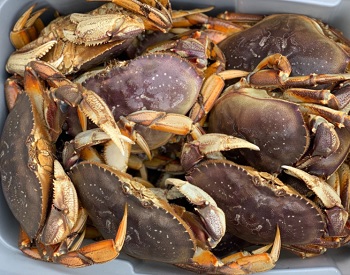
Latest round of Dungeness crab testing to conclude Tuesday
The second round of domoic acid and meat-quality testing for Dungeness crabs in Oregon, Washington and California is scheduled to conclude Tuesday as the commercial crabbing industry waits for an opening date. The results, which Oregon Department of Fish and Wildlife officials say are likely to be published by Wednesday, will determine if the coast’s commercial Dungeness crab season will open, or if the industry can expect more delays. >click to read< 09:58
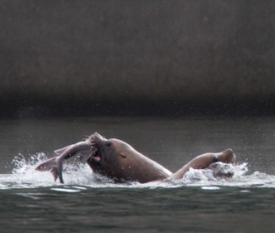
Federal Funding for Killing Sea Lions Might Help Cowlitz River Salmon
Though the actions taken to secure $892,000 in federal funding for the protection of Columbia River system salmon took place thousands of miles from Lewis County, the process could have positive impacts for fishermen of the Upper Cowlitz River and the Columbia basin as a whole. As a result of a joint effort between U.S. Representatives Jaime Herrera Beutler, R-Battle Ground, and Kurt Schrader, a Democrat from Oregon, the appropriations bill passed by congress will include funds to continue the Washington Department of Fish and Wildlife’s (WDFW) efforts to kill sea lions on the Columbia River, protecting salmon and steelhead. Sea lion extermination has been shown to be effective in protecting fish. >click to read< 11:35
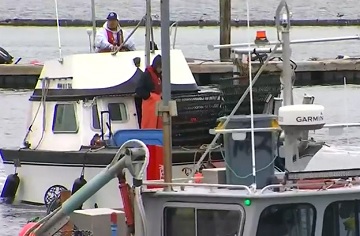
Tribal fishermen claim WDFW targeting tribal members in new age of Fish Wars
It’s been more than five years since two Tulalip Tribe members were taken into custody at a marina in Everett; but what led up to that moment is still a debate that’ll be settled in court. What’s clear is that regardless of how the court system plays out, neither side will ever see eye-to-eye. Hazen Shopbell, one of the tribal members, says it’s the new age of the Fish Wars, an era when tribal fishermen were beaten and battered for attempting to fulfill their treaty rights in Puget Sound. The Washington Department of Fish and Wildlife says what played out is a standard investigation, that two fishermen violated state laws and trafficked in illegal shellfish trade. >click to read< 08:41
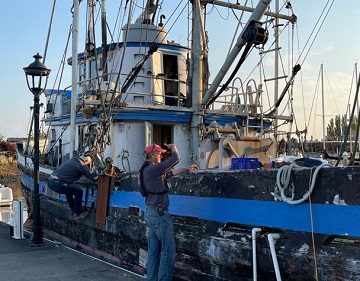
Derelict fishing vessel sinks off Point Whitehorn
The derelict 1930s fishing vessel sank off Point Whitehorn while being towed from Blaine Harbor to Bellingham. The Bligh Island, a 79-foot wooden hull purse seiner, had been in the Port of Bellingham’s custody since 2017. The port put the abandoned boat up for auction, but there were no bidders, port public affairs administrator Mike Hogan said.,, The boat sank in about 160 feet of water off Point Whitehorn at the end of Birch Bay. To Hogan’s knowledge, the vessel is the first boat owned by the Port of Bellingham to sink. >click to read< 16:21
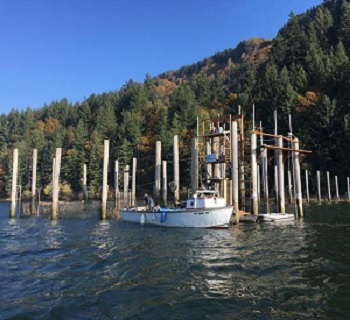
Washington State making a muddle of saving salmon
Local experts connected in various ways with salmon fishing and conservation must be ready to blow a gasket over the Washington Legislature’s latest clumsy efforts to “help.” In legislators’ defense, saving salmon is a supremely messy business, with more murky cross currents and furious undertows than a dangerous outer coast beach.,, Intentional confusion is added by outsiders whose only interest is in grabbing salmon for themselves or using the issue merely as a means to generate financial donations from well-wishing urbanites. And as if all that wasn’t enough, salmon management is also bound up with the need to help Washington’s endangered resident orcas, and with the obligation to coordinate some policies with Oregon and Canada. >click to read< 18:31
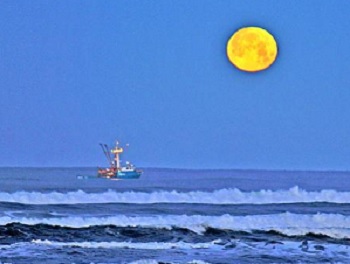
Crabbing families deserve TLC in this tough season
In normal times, this year’s disastrous Dungeness crab season would be big news beyond the coast. Even in this abnormal year, it’s time for elected officials and agencies to pay closer attention to how local families are being hurt by lack of crabbing. Typical measures of economic pain fail to capture the extent of damage.,, The most immediate problem for both commercial crabbing and recreational clamming is the marine toxin domoic acid,,, There are a lot of needy folks this year. That creates a risk that crab-dependent families may be overlooked. This fishery is a disaster and should be treated as an emergency. >click to read< 20:22
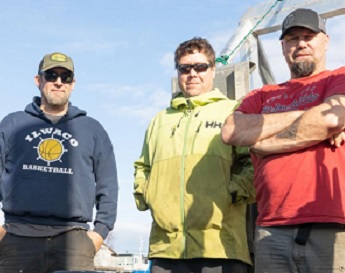
Washington Dungeness Crab season delays put fishermen in a pinch
Continuing delays caused by the marine toxin domoic acid have brought critical Southwest Washington commercial fishing ports to a standstill since December. The Washington Department of Fish and Wildlife currently expects an opening as early as Feb. 15. Meanwhile, the delays are forcing fishermen to go weeks without income while bills continue to pile up,,,, “I’ve been here for almost two months. It’s not good financially. It’s a lot of added stress. I’m at a point where I have to make a decision. Do I still stick around and keep losing money or am I going to go home? It’s going to make me go through a divorce.” photos, >click to read< 16:32

WDFW: Toxin domoic acid delays commercial Dungeness crab season until at least Jan. 1
The commercial Dungeness crab season opener faces a delay until at least Jan. 1 due to an excess of the marine toxin domoic acid in the guts of sampled crab, the Tri-State management group announced Tuesday evening, Dec. 8. The season had been previously set to start Dec. 16, depending on whether crab reached required minimum meat standards by then. “This decision was based on domoic acid tests of Dungeness crab collected by WDFW and analyzed by the Washington Department of Health,,, >click to read< 08:31
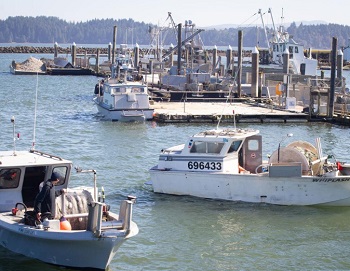
Coho swarm Willapa: Astounding run brings increased limits
An unexpectedly strong coho salmon return in the Willapa has fishery managers and biologists reassessing run size,,,. Willapa’s commercial gillnetters are hoping to get more fishing days this fall after early limits to avoid impacts on scarcer Chinook. Commercial fishermen are often the canary in the coalmine when it comes to reporting what’s occurring offshore. The first signs of a bigger-than-expected coho salmon run began showing up on the Port of Peninsula docks a couple weeks ago. >click to read< 18:28
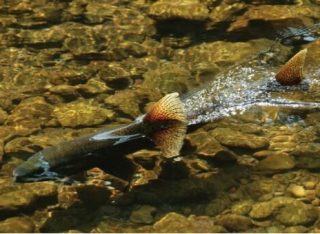
Columbia River Salmon Rules Set
The directors of the Washington and Oregon departments of Fish and Wildlife reached an agreement this week on allocations and gear types for Columbia River salmon fisheries in 2020. The Washington and Oregon Fish and Wildlife commissions earlier this year delegated development of 2020 Columbia River fisheries to Oregon Department of Fish and Wildlife (ODFW) Director Curt Melcher and Washington Department of Fish and Wildlife (WDFW) Director Kelly Susewind. >click to read< 12:10
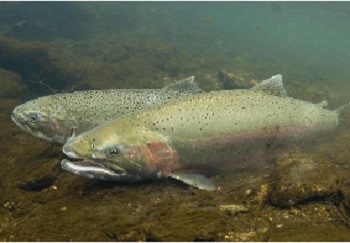
Washington Department of Fish and Wildlife Sued Over Steelhead Farming in Puget Sound
Environmental and conservation groups filed a lawsuit Tuesday against the Washington Department of Fish and Wildlife over the agency’s recent decision to allow Cooke Aquaculture to rear farmed steelhead trout in Puget Sound. The suit, filed in the Superior Court of Washington, alleges that the Washington Department of Fish and Wildlife issued a permit to allow steelhead fish feedlots, a type of fish-farming practice, to operate in the complex waterways of Puget Sound without any consideration of the consequences they would have on the environment. >click to read< 13:01
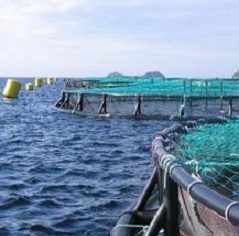
Canadian firm’s steelhead trout farm plan under the microscope after salmon escapes
Last month, a net pen used for fish farming and operated by Cooke Aquaculture Pacific began to dip below the surface off Bainbridge Island. A hole in a pontoon left the structure’s southeast corner partially submerged. Repairs were eventually made. But now as the New Brunswick-based Cooke seeks to farm steelhead trout — instead of the nonnative Atlantic salmon that state law will soon ban — the incident has caught the attention of state regulators. >click to read< 12:58
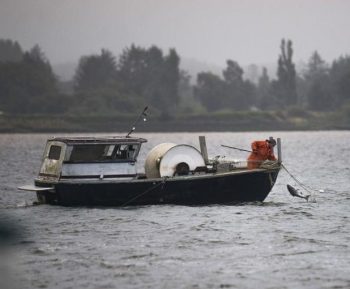
Lower Columbia River mainstem commercial gillnet fishing ; Non-treaty gillnetters get 45 hours through Aug. 29
With less than half of the 10-year average of fall Chinook salmon expected to return to the Columbia River this year, the two-state Columbia River Compact opened commercial gillnetting in the lower river and in pools upstream of Bonneville Dam for treaty commercial gillnetting.,,, The Compact met this week, Monday, Aug. 12, at the Washington Department of Fish and Wildlife’s regional office in Ridgefield to consider early fall Chinook mainstem gillnetting, deciding on 5 nine-hour overnight periods, for a 45-hour total for commercial non-treaty gillnetters beginning Aug. 14 and ending Aug. 29. >click to read< 16:34
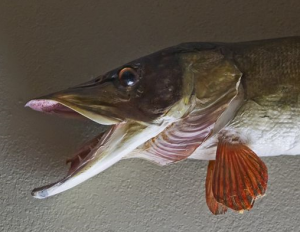
Last-ditch battle is underway to save Columbia River salmon, steelhead from determined predator
“In a lot of ways, the fight to save the Columbia River as we know it is going to be won and lost on Lake Roosevelt.” The enemy: northern pike.,,, The aggressive fish with razor-like teeth ended up in the Pend Oreille River sometime in the past decade – and kept going. This is bad news for the Columbia River’s salmon, trout, steelhead and other fish. Because the northern pike are big, determined predators. They’ll eat anything they can, including ducks. >click to read<11:00
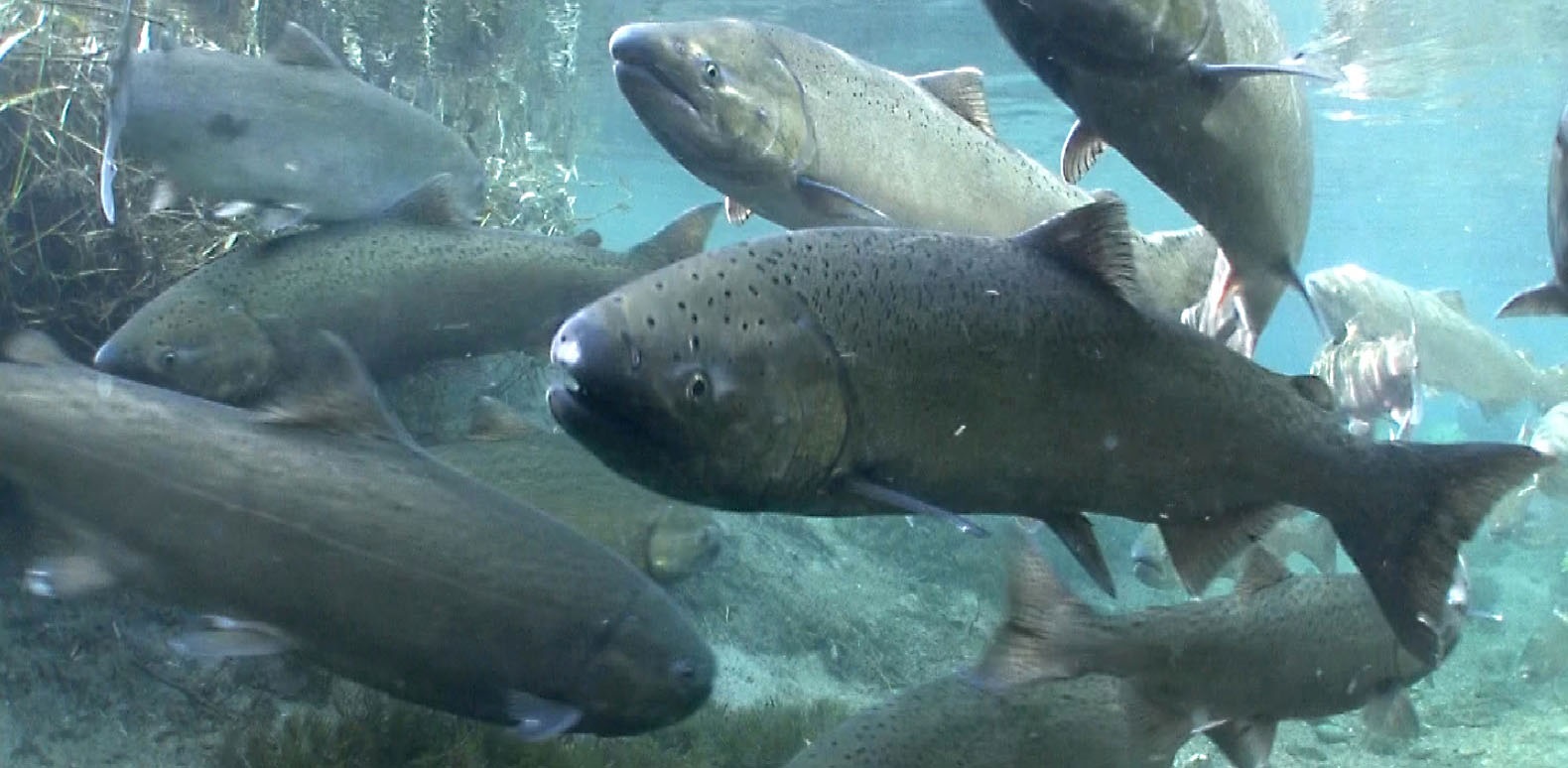
Dismal Columbia River salmon forecast may trigger emergency fishing restrictions
Fishery managers in Washington and Oregon are concerned the spring and summer chinook salmons runs on the Columbia River are going to be one of the lowest on record. And the state agencies are calling for a meeting next week to consider emergency restrictions on commercial and recreational fishing along parts of the river. By Friday morning, 189 adult salmon had crossed over Bonneville Dam. That’s less than 8 percent of the 10-year average of 2,392 fish for the same date. >click to read<09:24
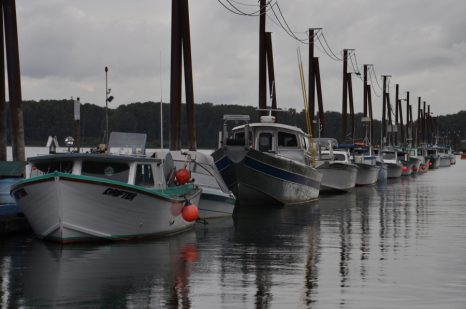
Columbia River Reforms – Both sides on gillnet issue dig in
A crucial vote concerning the Columbia River Reforms regarding gillnets will be taken by the full Oregon Fish and Wildlife Commission at a meeting on June 6-7 in Salem It will determine whether the alterations suggested by the joint-state task force will be adopted.,,, Former Washington commissioners and fisheries scientists have also weighed in with a letter to the legislature, and groups that oppose or endorse the changes have rallied the troops. >click to read<10:28
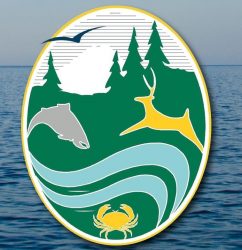
Options presented for Washington’s ocean salmon fisheries based on predictions
Fish managers released their options for Washington’s ocean salmon fisheries that reflect recent concerns over projected chinook stocks and optimism about improved returns of coho. Three options for ocean salmon fisheries were approved Tuesday for public review by the Pacific Fishery Management Council (PFMC). Kyle Adicks, salmon fisheries policy lead for the Washington Department of Fish and Wildlife says that the three alternatives are designed to protect the low numbers of chinook expected to return to the Columbia River and Washington’s ocean waters. >click to read<13:00

Ilwaco: Ocean conditions again interfere with crab sampling
On Thursday turbulent seas again got in the way of collecting Dungeness crab to see if they have at least 23 percent meat in the waters south of Klipsan Beach, a requirement before the region’s commercial crabbers can start the 2018-19 season. The crab season traditionally starts Dec. 1, but is often delayed. Last season, harvests didn’t begin until Jan. 15, 2018. This season, early testing found crab slightly under 23 percent off the Long Beach Peninsula and substantially low in meat off southern Oregon. Delays have mounted as rough conditions keep a vessel contracted by the Washington Department of Fish and Wildlife from dumping pots — first on Dec. 22 and then on Dec. 26.>click to read<11:59
BREAKING: More crab season complications – >click to read< 16:44
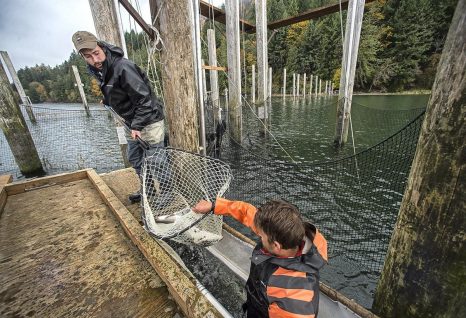
Columbia River commercial fishery could hinge on century-old method
A series of nets strung between pilings just off the Columbia River shore may offer a glimpse of the future of commercial fishing in the river, even though it harkens back to the fishing practices of a century ago. But some gillnetters say that the experimental fish trap, also known as a pound net, is just another unworkable idea for catching salmon that threatens their livelihoods. One morning last week, researchers from the Washington Department of Fish and Wildlife and the Wild Fish Conservancy worked the fish trap set in the Columbia a few miles upstream of Cathlamet, near Nassa Point. >click to read<09:34
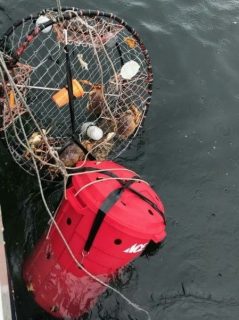
Crabber caught poaching, hiding crab in trash cans under water before season opened
A crabber suspected of poaching a large amount of crab before the season began has been busted by wildlife officials. Officers with the stgarbage can full of crab ate’s Department of Fish & Wildlife received a tip from someone stating he had found a garbage can full of crab tied to a crab pot in the waters off Blaine the day before the commercial season began. The tipster stated the crabber was stockpiling recreationally caught crab for sale once the commercial season opened, officials said. >click to read<19:14
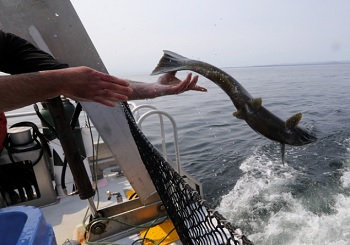
Dosed salmon, clipped fins, a ‘dinner bell’: How far is too far in helping starving orca?
The emergency effort to save a critically ill orca whale is an experiment without precedent. An international team of scientists is piloting techniques to treat a wild, free-swimming orca, one of the largest predators on Earth. The effort includes serving up live fish pumped with medicine and playing a unique tone that one researcher likened to a “dinner bell.” A federal permit approved Aug. 8 provides the clearest look yet at the details of an operation that raises questions even for those involved about the proper limits of human intervention. >click to read<17:39
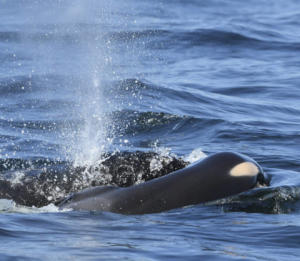
Pinnipeds, not commercial fishing, depriving Orca of salmon
The plight of the orcas has caught the attention of government leaders after a mother orca was spotted carrying her dead baby for nine days in a row; Tom Nelson of 710 ESPN’s “Outdoor Line” podcast has a few ideas for how the state can help save them. Nelson explains that, unlike other types of orca that feast on pinnipeds such as seals and sea lions, the Southern Resident Killer Whales rely on eating salmon to survive. The grieving mother belongs to the Southern Resident pod. There are not enough salmon being produced at hatcheries to feed the Orca in the Puget Sound, Nelson explained, and increasing development has destroyed the salmons’ homes. “That has put a pinch on the diet of these Southern Resident Killer Whale Orcas, >click to read<16:44






